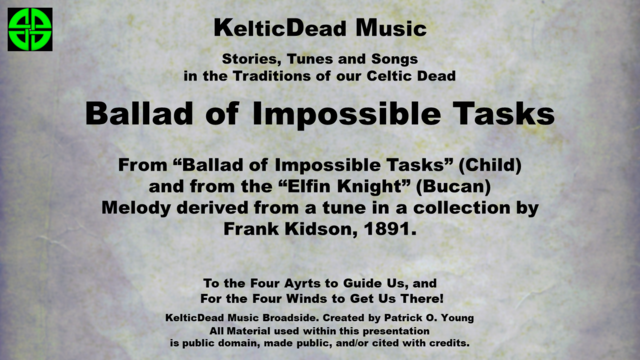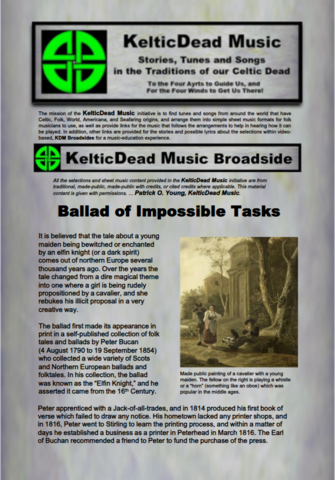KelticDead Music-Story Broadsides
"Ballad of Impossible Tasks"
The KelticDead Music initiative is a FREE, on-line, music-education resource for those who are interested in music played in traditional Folk, Celtic, Old-Time, and Sea-Faring styles with live, acoustic folk-music instruments like guitars, whistles, bouzoukis, and others. The mission of the KDM is to provide a resource for those who can enjoy how these old tunes and songs were(are) played, but also provide a resource for those who might want to play along using their own instruments from the comfort of their own home. A new thrust by the KDM is to also provide, on-line, page-turning stories about the selections that are formatted to be viewed from computers or upon smartphones. My KDM story broadsides can also be found within a collaborative on-line magazine out of Europe. Check out SIMPLY FOLK MUSIC MAGAZINE on Facebook.
The latest project is one that most people know from Simon and Garfunkel's "Scarborough Faire" (1966). However, this ballad was actually far older than that and the melody first appeared in 1891 by a collection from Frank Kidson. To view the free, KDM YouTube version of the ballad click on the image below.

To View of the KDM Story Broadside (which also has a view of the KDM sheet music arrangement, click on the following image:

Visit https://www.KelticDead.com